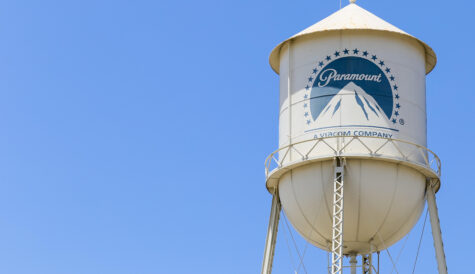
After more than 40 years of operation, DTVE is closing its doors and our website will no longer be updated daily. Thank you for all of your support.
HBO Max gets set for launch

WarnerMedia this week unveiled details of HBO Max’s first European launches, with European general manager Christina Sulebakk giving an exclusive interview to Digital TV Europe in which she said that the service would provide a completely new experience to the group’s legacy services in the region.
Sulebakk said the fact that the offering would be based on “a completely new technology” platform using the US tech stack to underpin the global offering and provide an experience that is “very different from today, especially from the content discovery perspective”.
In a world where talk of subscription fatigue and saturated markets is now common, differentiation around the UX will be a key element in positioning the new service.
WarnerMedia is focusing on existing streaming territories in Europe as it phases its rollout, beginning with two of its strongest territories – the Nordics and Spain – followed by central and eastern Europe and Portugal.
The choice plays to HBO’s existing strength in these markets, particularly the Nordics where it has built a strong base over the last decade.
“I think they have really good prospects,” says Sweden-based Tony Gunnarsson, principal analyst, TV, video and advertising at DTVE’s sister research house Omdia.
Gunnarsson contrasts the strength of the existing HBO Nordic service in content with its relative weakness in technology compared with rivals such as Netflix and local star Viaplay. The current HBO service is not available via an iOS app and is not easily viewable on TV screens, for example.
HBO Max, by contrast, will be available in what Sulebakk told DTVE would be a “full iOS and Android experience” that has not been present until now.
Currently, says Gunnarsson, “the content is there but the tech stack isn’t comparable with other services”. He believes that “bringing a modern up-to-date user experience” into the equation could be a game-changer for a brand that, despite its shortcomings, “has still been one of the biggest services in the Nordic region after Netflix and Viaplay”.
“The more you remove barriers to entry the better. That is the game Netflix succeeds at,” says Gunnarsson.
Alongside an improved technology stack, Gunnarsson believes that curation will be key to building loyalty. Content on the existing service has sometimes not been easily found or surfaced, he says.
This is a point also made by Sulebakk, who told DTVE that it was “very important” that the service should have a very local feel with the content that is surfaced based on “curation rather than an algorithm”.
The fact that HBO Max is launching in markets where there is an existing legacy HBO brand presence brings challenges and opportunities. While the service has an opportunity to transition its existing base – most likely aided by what Sulebakk said would be “an aggressive pricing strategy” – it nevertheless also has to build on that base and capture new users to be able to claim success.
“The key challenge for them is to convince existing users that they are getting something better but also to convince people who have maybe tried it in the past but haven’t been convinced…that here is yet another must-have service,” says Gunnarsson.
Making consumers aware of the service and ensuring that those barriers to entry are minimised can be aided by strong distribution partners, as other direct-to-consumer services have found. Wholesale and partnerships are likely to be equally important for HBO Max.
in Spain WarnerMedia has rolled over the existing exclusive partnership it has with Vodafone for HBO España to HBO Max. partnerships with distributors are also likely to be crucial in central and eastern Europe when the service launches there. Central and Eastern Europe remains a strong pay TV market where the impact of cord-cutting has so far been muted. In a number of territories in the region, HBO’s current service is essentially a wholesale play and the provider has historically been opportunistic about the kind of distribution deals that make sense. (In Russia, WarnerMedia recently struck a new licensing deal with Amedia, suggesting any launch of HBO Max in that market is a more distant prospect.)
Elsewhere, in the major markets of the UK, France and Germany, existing licensing arrangements with big pay TV operators mean that there is no immediate prospect of a Max service launching.
It is not yet clear how the future is likely to pan out for HBO Max in these territories, even if WarnerMedia’s global ambition for the service remains undimmed.
One of the other great unknowns in all of this in the longer term is the possible impact of WarnerMedia’s combination with Discovery. The current HBO Max service will be built around five different brand hubs in a model similar to Disney+. In the long-term the addition of Discovery could create a very strong offering.
Gunnarsson says he doesn’t believe that HBO Max “needs Discovery to succeed” but such a combination would “make it harder for customers to resist signing up”. This could particularly be the case if sports was included in the proposition thanks to Discovery’s Eurosport offering.
In the meantime, WarnerMedia is focused on what Sulebakk describes as “a roadmap that looks feasible”. With the rollout of a stronger offering in territories where HBO already has a solid brand presence, the prospects indeed look good.


